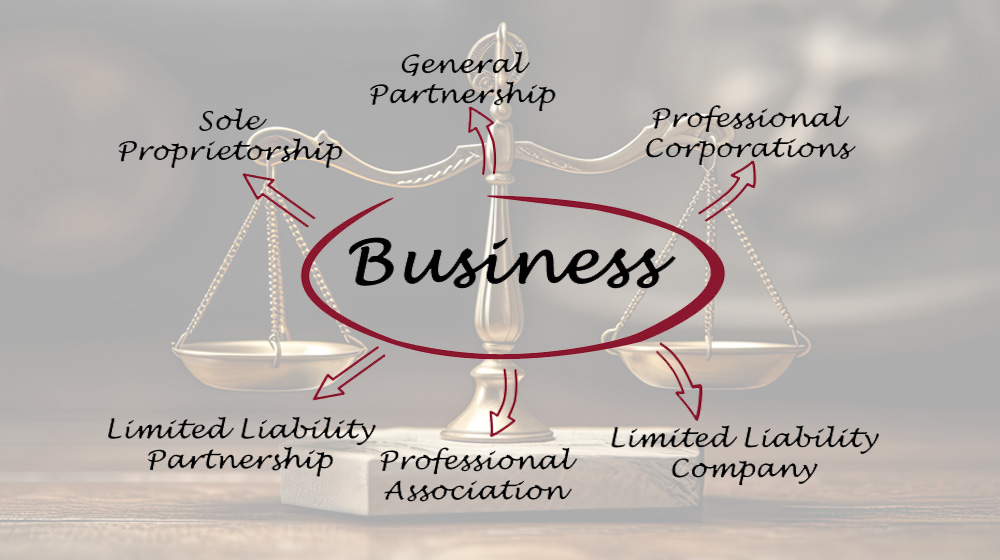
Incorporation, LLCs and Other Business Structures
Dagger Law’s experienced attorneys can help you determine the best business structure for your needs.
Whether incorporating, establishing a Nonprofit organization, or many other options, we can assist in the business formation process. Depending on what you chose, there can be significant or subtle changes to taxes, liability, management and control, funding options, and opportunities. By meeting with one of our Business Law attorneys, you can be sure that you will receive guidance that you can confidently put into action. We can assist with the formation of any of the following business structures:
- Limited Liability Company (LLC)
- Incorporation (Inc)
- General Partnership or Limited Liability Partnership (LLP)
- Corporation (both S Corp and C Corp)
- Sole Proprietorship
- 501 c 3 and Not for Profit/nonprofit filings
We recommend the use of an attorney to handle all the legal aspects of your company.
As a business owner, your attorney is a trusted resource for you to lean on. Getting help with legal compliance allows you to stay focused on the rest of your business planning. Most businesses find that they need to seek an attorney’s services at some point during their operation. Commonly, this happens due to employee issues, customer lawsuits, collections matters, or because you need a contract reviewed or drafted. Working with a lawyer from the very beginning can help establish that relationship with a legal resource aware of your goals and plans at a detailed level.
While we can’t predict every question you might have, here are several that we hear regularly.
Q: How much does it cost to set up my own company?
A: It can depend on the business structure’s complexity. Ordinarily, complexity determines the amount of work required by the attorney. Your attorney must ensure that all aspects of liability and taxation are legally covered. We can accomplish most filings for a flat fee for most basic services. In that case, our attorneys will handle all the proper filing and recording for you.
Q: Can’t I file with the Ohio Secretary of State on my own?
A: In many cases, you can file and register yourself. As of April 2019, there were over 120 different forms available on the Ohio Secretary of State website. Do you know which ones you need? Our experienced attorneys do, and they can handle this tedious task on your behalf. However, filing is just the beginning.
After filing, a business must communicate with the IRS, the Ohio department of taxation, and obtain other licenses or permits that are required. By utilizing an attorney, you can ensure that all necessary legal frameworks are in place. It can be easier to use an attorney to establish the business than to use an attorney to fix anything that goes wrong due to not understanding which business structure to use. Filing yourself depends on your comfort level, completing the required paperwork, and your willingness to assume the future risk.
Q: Why should I incorporate or establish a business structure?
A: In many cases, this shifts the liability from being personal, in a sole proprietor role, to the business. This liability assignment means that the company owns any potential business debt and not you as an individual unless you have also given a personal guarantee. There may also be some practical tax advantages for businesses, which you can’t take advantage of as a sole proprietor. We suggest you consult with an attorney to determine which business structure may be proper for you.
Q: What are the differences between articles of organization and articles of incorporation?
A: LLCs file Articles of organization. Likewise, C Corporation or an S Corporation files articles of incorporation. In either instance, the Secretary of State requires much of the same information. Commonly, this will include the name of the business, street address, and similar information at the most basic level.
Q: What is the difference between an S Corporation and a C Corporation?
A: The most obvious difference is in who pays the taxes. In a C Corporation, the tax is paid by the business itself, on any income, plus tax is paid on owner income. In an S Corporation, owners report the company revenue as personal income.
Q: Will a business structures attorney travel to me, or do I need to come to your offices in either Lancaster or Canal Winchester?
While some meetings will need to occur in our offices, we try to minimize your travel time. We offer two convenient office locations in Lancaster and Canal Winchester, Ohio. Our goal is to reduce the disruption to your life caused by legal issues and conduct most communications or meetings through emails or phone calls.
In certain circumstances, we realize that clients can’t reach us, and we may be required to visit your location. Suppose you retain a Dagger Law attorney to represent you. In that case, they will travel to the necessary court hearings and legal procedures to represent you anywhere in Ohio! Please note that in some instances, the cost to represent your case may require an unusual amount of money due to travel expenses. In such cases, we may recommend using legal representation closer to the location of your case. We are happy to provide referrals in these instances if we are able.
We proudly serve the following communities throughout Central and Southeastern Ohio:
- Fairfield County
- Franklin County
- Hocking County
- Licking County
- Pickaway County
- Baltimore, Ohio
- Buckeye Lake, Ohio
- Canal Winchester, Ohio
- Circleville, Ohio
- Greater Columbus Area
- Lancaster, Ohio
- Logan, Ohio
- Newark, Ohio
- Other locations nearby
Check out the nearest location to you by visiting our locations page.
